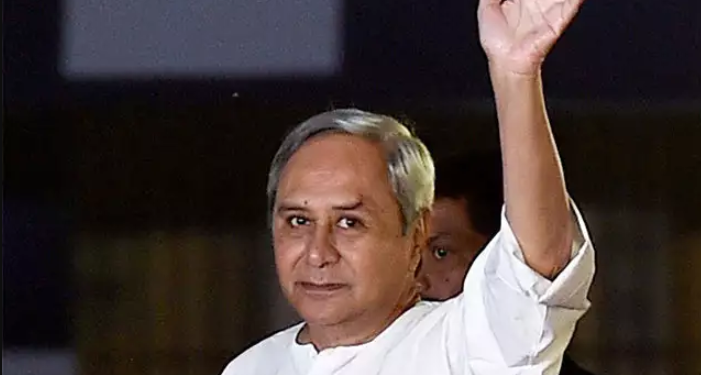Bhubaneswar: Once a reluctant inheritor to his legendary father Biju Patnaik’s legacy, Chief Minister Naveen Patnaik has proved himself as the unchallenged leader of the ruling BJD to be elected its President for eighth consecutive time.
An author, a connoisseur of art, a canny politician whose calm expression covers the sternness he is capable of while dealing with political opponents and rebel party men, Naveen Patnaik, once considered a novice in politics, has come a long way.
Youngest among the three children of former Chief Minister Biju Patnaik, Naveen took over the mantle of his father as a neophyte upon his death in 1997.
Born October 16, 1946 in Cuttack, Naveen did his schooling from Welham Boys’ School and Doon School in Dehradun. He completed his BA from Kirori Mal College of Delhi University.
A little over two decades down the line, the once disinclined politician resumed the reins of power for the fifth consecutive term, having led the Biju Janata Dal (BJD) to another emphatic electoral victory last year.
The 73-year-old leader, who steered the BJD to a landslide victory in the assembly polls held last year, was Wednesday elected as the President of the regional party for the eighth time in a row.
Patnaik has been holding the top post since the regional party was formed December 26, 1997.
“The BJD does not fight election to win or lose. It fights to win the love and affection of the people and to serve the people of Odisha,” Patnaik said after being formally re-elected as the President of the regional outfit. “I thank the 4.5 crore people of the state,” the chief minister added.
Already the longest-serving chief minister of Odisha, having assumed office in 2000, Patnaik has weathered many a controversy from chit fund scams to mining scandals, but remained the foremost leader of the regional outfit he heads.
Patnaik’s image of a ‘clean and honest’ politician is widely regarded as the reason why he was able to withstand a spirited challenge thrown by the BJP, analysts say of perhaps the lone regional satrap who cannot even properly speak the language of his native state. He had his baptism in politics when he became a Lok Sabha member from Aska seat represented by his father in a by-election in 1997.
Later, when the Janata Dal split, Patnaik floated BJD. He forged an alliance with the BJP and became a minister in Atal Bihari Vajpayee Cabinet in 1998. He was re-elected from Aska in 1998 and 1999 as parliamentary elections were held in quick succession amid political instability.
In 2000, when the BJD-BJP alliance won the Assembly elections, Patnaik was made chief minister. The combine retained power after 2004.
However, the ties between the two parties soured in the aftermath of Kandhamal riots that broke out following the killing of Vishva Hindu Parishad (VHP) leader Swami Laxmanananda Saraswati in 2008.
Patnaik broke the alliance with the saffron party on the eve of the 2009 General and Assembly elections. The move turned out to be a political masterstroke as it strengthened his secular credentials.
Contesting the simultaneous polls, the BJD won 14 of the state’s 21 Lok Sabha seats and 103 of the 147 assembly constituencies. Since 2009, Patnaik weathered many a storm, including an alleged coup attempt by leaders of his own party in 2012 when he was on a visit abroad. He only emerged stronger.
The BJD posted a record victory in 2014, untouched by the Modi wave. His party grabbed a lion’s share of 117 of the 147 assembly seats and 20 of the 21 Lok Sabha seats.
Hidden behind Patnaik’s enigmatic smile is a ruthless practitioner of modern-day politics. He crushed dissidence with an iron hand as he threw out and cut to size stalwarts like Bijoy Mahapatra, Pyari Mohan Mohapatra, close aide Baijayant Panda and Damodar Rout, a known Biju loyalist.
Despite his accented Odia and somewhat deficient oratorical skills, Patnaik has a special place in voters’ hearts. His populist measures like Re 1-a-kg rice and Rs 5-per-meal schemes were instant hit.
Ahead of 2019 polls, Patnaik not only pitched for 33 per cent reservation for women but also walked the talk by implementing the formula while nominating BJD candidates for the lok Sabha election.
The “Mo Sarkar” and 5T (Transparency, Technology, Teamwork, Transformation and Time) initiatives are also seen as revolutionary steps to transform the governance.
Though Naveen was a votary of maintaining equidistance from BJP and Congress for around a decade, he gave enough indication during 2019 elections that his party was ready to support any alliance.






































